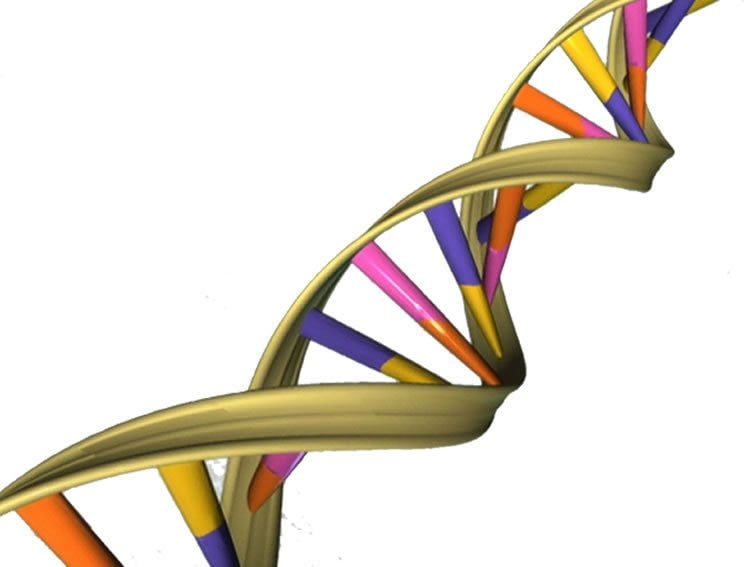New research in The FASEB Journal suggests that prevalent protein found in schizophrenia also plays a direct role in the function of pancreatic beta cells, which produce insulin to maintain blood sugar levels.
There may be a genetic connection between some mental health disorders and type 2 diabetes. In a new report appearing in the February 2016 issue of The FASEB Journal, scientists show that a gene called “DISC1,” which is believed to play a role in mental health disorders, such as schizophrenia, bipolar disorder and some forms of depression, influences the function of pancreatic beta cells which produce insulin to maintain normal blood glucose levels.
“Studies exploring the biology of disease have increasingly identified the involvement of unanticipated proteins–DISC1 fits this category,” said Rita Bortell, Ph.D., a researcher involved in the work from the Diabetes Center of Excellence at the Universityof Massachusetts Medical School in Worcester, Massachusetts. “Our hope is that the association we’ve found linking disrupted DISC1 to both diabetes and psychiatric disorders may uncover mechanisms to improve therapies, even preventative ones, to alleviate suffering caused by both illnesses which are extraordinarily costly, very common, often quite debilitating.”
To make their discovery, Bortell and colleagues studied the function of DISC1 by comparing two groups of mice. The first group was genetically manipulated to disrupt the DISC1 gene only in the mouse’s pancreatic beta cells. The second group of mice was normal. The mice with disrupted DISC1 gene showed increased beta cell death, less insulin secretion and impaired glucose regulation while control mice were normal. The researchers found that DISC1 works by controlling the activity of a specific protein (GSK3β) already known to be critical for beta cell function and survival. Inhibition of GSK3β resulted in improved beta cell survival and restored normal glucose tolerance in mice with disrupted DISC1. Alterations in the DISC1 gene were originally associated with increased risk of schizophrenia, but further studies have also found DISC1 alterations in individuals with bipolar disorder and major depression.

“The connections between these disorders may be surprising, but we have known for a long time that a single protein or gene can play multiple roles in the body,” said Thoru Pederson, Ph.D., Editor-in-Chief of The FASEB Journal.
Source: Cody Mooneyhan – FASEB
Image Source: The image is in the public domain.
Original Research: Abstract for “Beyond the brain: disrupted in schizophrenia 1 regulates pancreatic β-cell function via glycogen synthase kinase-3β” by Agata Jurczyk, Anetta Nowosielska, Natalia Przewozniak, Ken-Edwin Aryee, Philip DiIorio, David Blodgett, Chaoxing Yang, Martha Campbell-Thompson, Mark Atkinson, Leonard Shultz, Ann Rittenhouse, David Harlan, Dale Greiner, and Rita Bortell in FASEB Journal. Published online February 2016 doi:10.1096/fj.15-279810
Abstract
Beyond the brain: disrupted in schizophrenia 1 regulates pancreatic β-cell function via glycogen synthase kinase-3β
Individuals with schizophrenia and their first-degree relatives have higher rates of type 2 diabetes (T2D) than the general population (18–30 vs. 1.2–6.3%), independent of body mass index and antipsychotic medication, suggesting shared genetic components may contribute to both diseases. The cause of this association remains unknown. Mutations in disrupted in schizophrenia 1 (DISC1) increase the risk of developing psychiatric disorders [logarithm (base 10) of odds = 7.1]. Here, we identified DISC1 as a major player controlling pancreatic β-cell proliferation and insulin secretion via regulation of glycogen synthase kinase-3β (GSK3β). DISC1 expression was enriched in developing mouse and human pancreas and adult β- and ductal cells. Loss of DISC1 function, through siRNA-mediated depletion or expression of a dominant-negative truncation that models the chromosomal translocation of human DISC1 in schizophrenia, resulted in decreased β-cell proliferation (3 vs. 1%; P < 0.01), increased apoptosis (0.1 vs. 0.6%; P < 0.01), and glucose intolerance in transgenic mice. Insulin secretion was reduced (0.5 vs. 0.1 ng/ml; P < 0.05), and critical β-cell transcription factors Pdx1 and Nkx6.1 were significantly decreased. Impaired DISC1 allowed inappropriate activation of GSK3β in β cells, and antagonizing GSK3β (SB216763; IC50 = 34.3 nM) rescued the β-cell defects. These results uncover an unexpected role for DISC1 in normal β-cell physiology and suggest that DISC1 dysregulation contributes to T2D independently of its importance for cognition.—Jurczyk, A., Nowosielska, A., Przewozniak, N., Aryee, K.-E., DiIorio, P., Blodgett, D., Yang, C., Campbell-Thompson, M., Atkinson, M., Shultz, L., Rittenhouse, A., Harlan, D., Greiner, D., Bortell, R. Beyond the brain: disrupted in schizophrenia 1 regulates pancreatic β-cell function via glycogen synthase kinase-3β.
“Beyond the brain: disrupted in schizophrenia 1 regulates pancreatic β-cell function via glycogen synthase kinase-3β” by Agata Jurczyk, Anetta Nowosielska, Natalia Przewozniak, Ken-Edwin Aryee, Philip DiIorio, David Blodgett, Chaoxing Yang, Martha Campbell-Thompson, Mark Atkinson, Leonard Shultz, Ann Rittenhouse, David Harlan, Dale Greiner, and Rita Bortell in FASEB Journal. Published online February 2016 doi:10.1096/fj.15-279810







